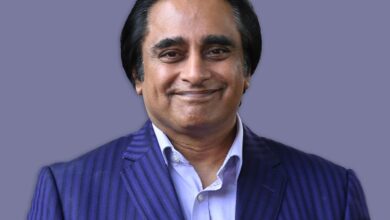Cherry Jones: ‘All of the adults have left the room in America, and maybe in most of the world now’

To talk to Cherry Jones about anything at all is to end up talking politics.
I don’t get the sense that she’s trying to be political, just that everything that interests the actor – about the art she makes, about the people she knows, about the fact I have a young child, about conversation itself – is inherently political.
She conceives of her new Apple TV+ mini-series Five Days at Memorial – a ripped-from-the-headlines survival drama about Hurricane Katrina – as, implicitly, a climate-change call to action.
When I ask about her Succession character Nan Pierce – the matriarch of a media family who goes head-to-head with Brian Cox’s Logan Roy – her associations lead straight to the US capital and the first-ever female publisher of The Washington Post.
“So is she sort of a wannabe Katharine Graham?” Jones asked when she was offered the role.
The 65-year-old actor with the dark silver bob and warm Tennessee lilt has long been considered one of her generation’s greatest stage actors, with Tony awards for her 1995 turn in The Heiress and another for originating the terrifying role of Sister Aloysius in Doubt, a thunderous play about the Catholic Church’s sexual abuse scandal – and later a Meryl Streep movie.
But over the past decade, she’s also emerged as a go-to star for TV’s most politically ambitious projects: the HBO media dynasty drama Succession, for which she won her third Emmy. Hulu’s dystopian smash The Handmaid’s Tale (second Emmy).
Amazon’s ground-breaking comedy Transparent. Still, for many audiences, Jones remains most recognisable as President Allison Taylor from 24, the slick network drama about an ethically dubious counter-terrorism agent. Emmy #1, if you can believe it.
On Five Days at Memorial, a series based on New York Times reporter Sherri Fink’s bestseller, Jones plays real-life nursing coordinator Susan Mulderick.
She happened to be serving the rotating post of “incident commander” on the 2005 weekend Katrina hit Memorial Medical Centre in New Orleans, which means Mulderick was the one responsible for the lives of more than 2,000 people. That included patients, their families, doctors, and citizens who’d turned up to the hospital looking for shelter.
What happened next should be the stuff of fiction. Memorial survived the initial storm, but when the city’s levees broke, flooding killed the hospital’s back-up generators. Inside the building, as temperatures soared past 100F, Mulderick was responsible for answering an unimaginable array of what-ifs.
What if we run out of medicine? What if we run out of water? What if no one comes to save us? Tellingly, the hospital’s only evacuation plan took for granted that the land around the mammoth facility would be dry as a cracker.
Jones was doing Doubt when the storm hit, but she still remembers watching the news coverage each night. She remembers watching the death toll rise, eventually to more than 1,800 fatalities.
She remembers people standing on their roofs trying to flag down rescue helicopters. She even remembers what she was thinking: “This only happens in a third world country.”
When Jones saw the “tremendous” script for Five Days at Memorial, from 12 Years a Slave writer John Ridley and Lost showrunner Carlton Cuse, those memories came rushing back, mixing with new concerns about the current shape of American democracy.
I’ve always been a tomboy and gay, but when I started researching Eileen, I thought, ‘I’m really going to have to butch up here’
It’s a sense of alarm informed by inaction on climate change, the Black Lives Matter protests, and the nation’s response to Covid. “There have to be plans,” Jones says emphatically. “There has to be. There’s got to be an adult in the room. All of the adults have left the room in America, and maybe in most of the world now.
“And we have to make our leaders do it,” she reminds me, managing not to sound condescending or even pontificating. If anything, it feels like Jones is asking me nicely to do my part. “We have to be willing to sacrifice so that your daughter and other children will be able to breathe the air 50 years from now.”
Even as we ping-pong between supercharged topics, it would be difficult to overstate how very still Jones can sit. I suppose you could say she sits with an actor’s cultivated poise but, really, that doesn’t do it justice.
Over Zoom on a busy morning, both of us in busy New York City, Cherry Jones sits stiller than any human being has ever sat before. The comforting effect is similar to watching goldfish swim around a bowl. In a single conversation, she does more for my heart rate than a lifetime of deep breathing.
Holly Hunter and Cherry Jones in ‘Succession’
It’s about everything that is smacking us in the face right now, from racial and economic injustice, to climate change, to the fact that our healthcare workers are now our frontline soldiers, and are going to continue to be our frontline soldiers.





